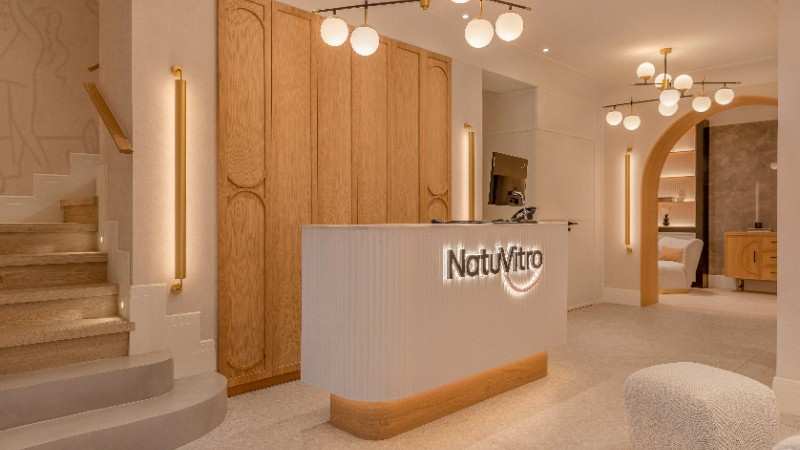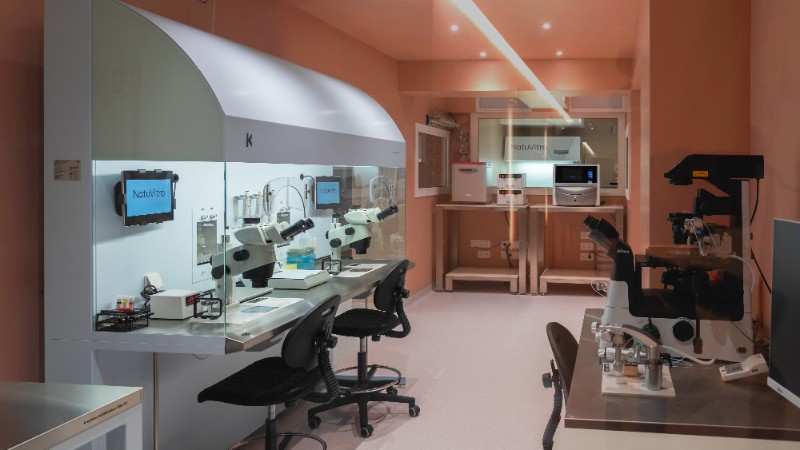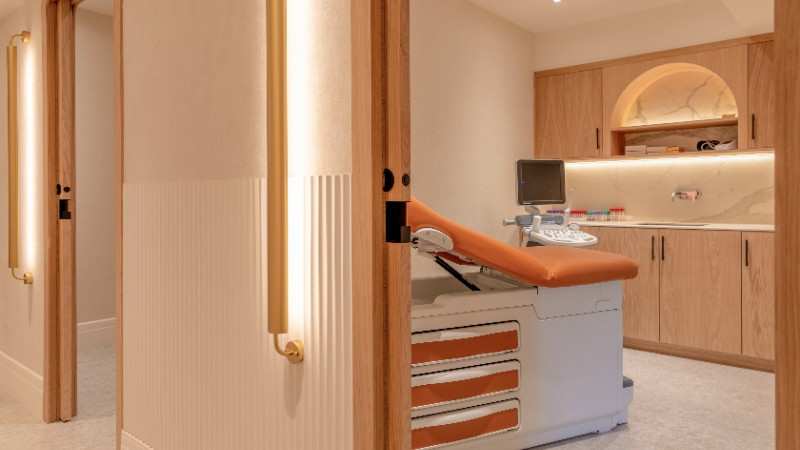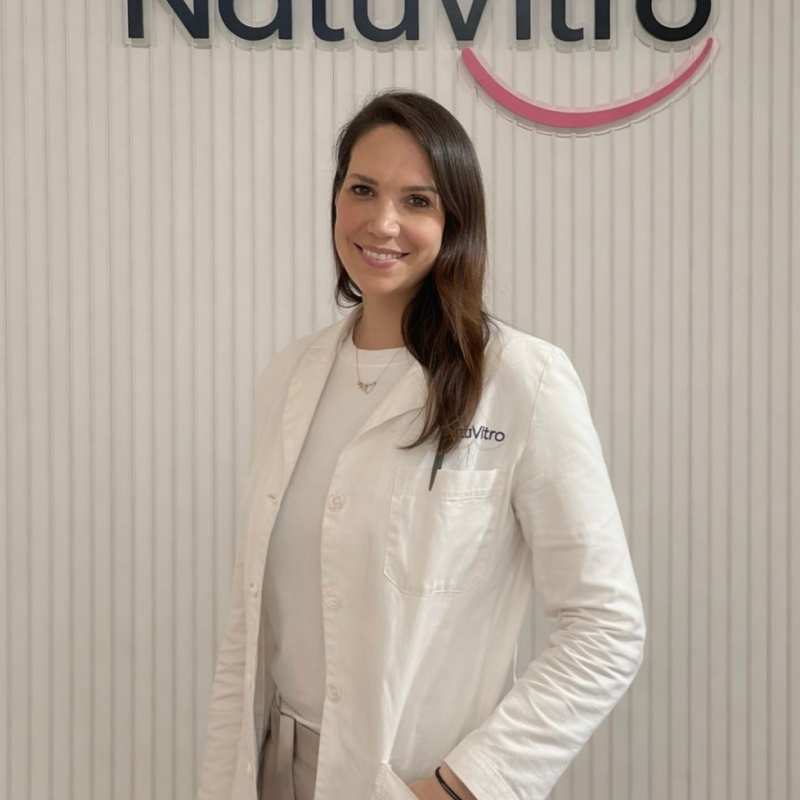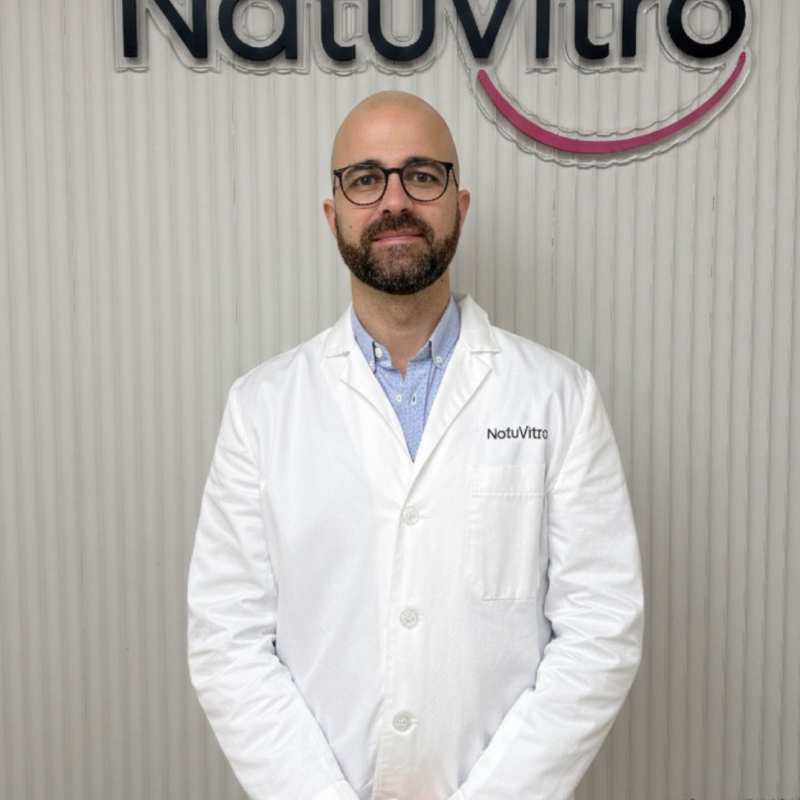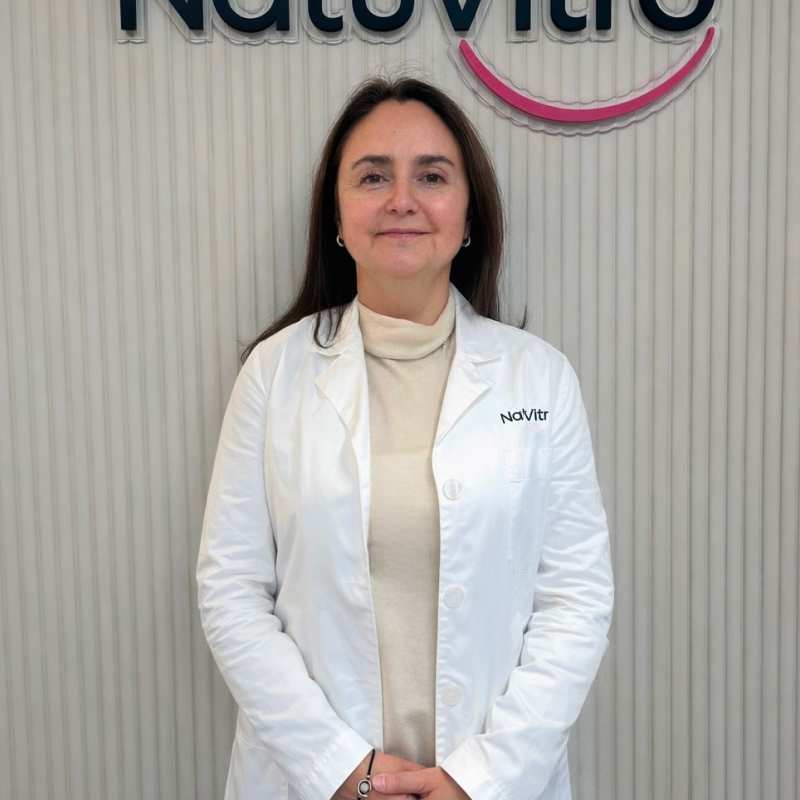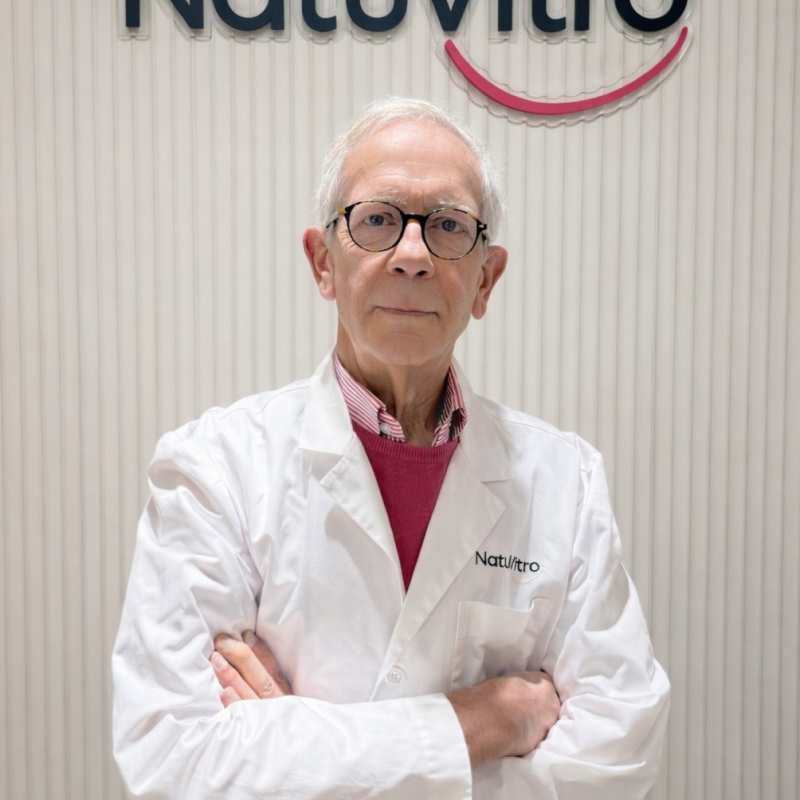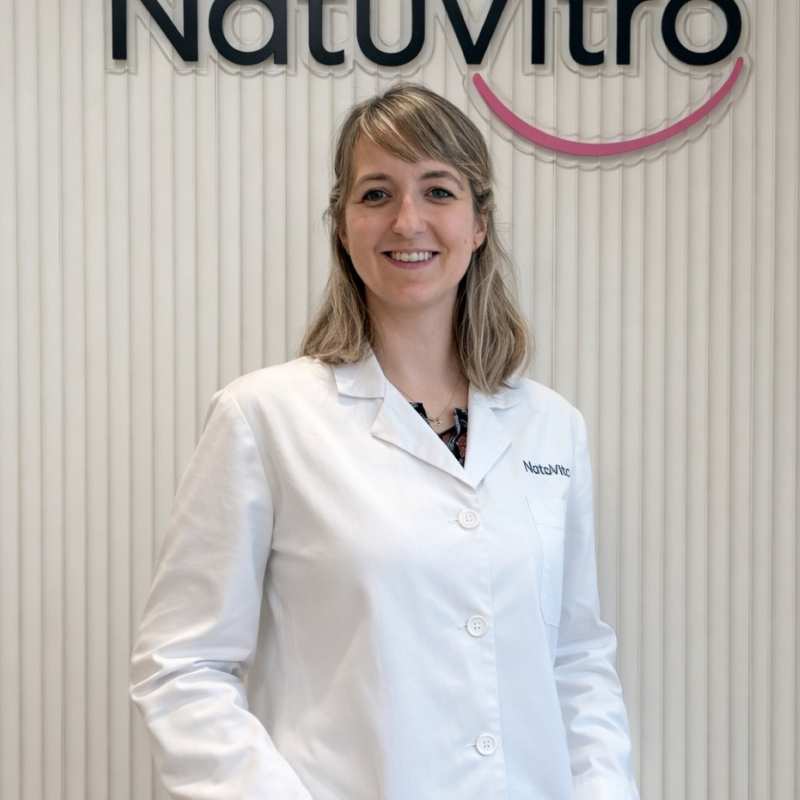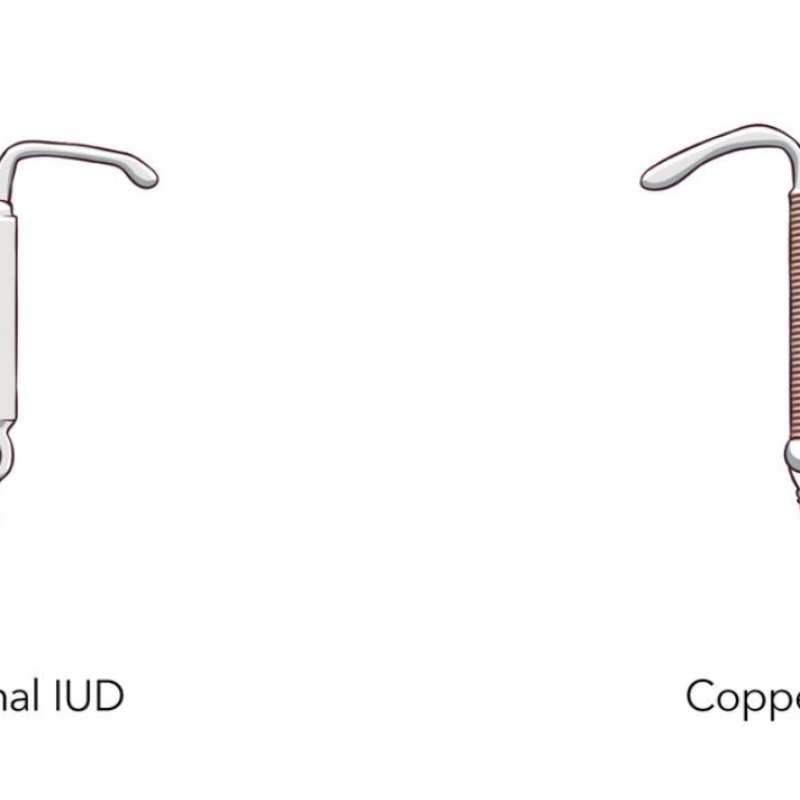
In Vitro Fertilization (IVF) and egg donation represent significant advancements, offering hope to many who dream of starting a family. IVF, a process where an egg is fertilized by sperm outside the body and the resulting embryo is implanted in the uterus, has become a beacon of hope for couples facing fertility challenges. Egg donation adds another layer of possibility, particularly for those unable to use their own eggs. However, a common question arises when considering these treatments: Can IVF with egg donation be successfully undertaken if an Intrauterine Device (IUD) is in place?
An IUD, a small contraceptive device inserted into the uterus, is widely used for its effectiveness and convenience. However, its presence raises important considerations in the context of fertility treatments. This article aims to explore this intersection, delving into whether undergoing IVF with egg donation is feasible or advisable for individuals with an IUD. Understanding this interplay is crucial, not only for those contemplating such treatments but also for medical professionals advising patients on their fertility journey. By examining the medical, logistical, and personal factors involved, we aim to provide a comprehensive overview, guiding readers through the complexities of managing IUDs in the landscape of advanced fertility treatments.
Understanding IVF and Egg Donation
In Vitro Fertilization (IVF) and egg donation are cornerstones of assisted reproductive technology, each with its unique process and purpose. IVF involves stimulating the ovaries to produce multiple eggs, retrieving these eggs, and then fertilizing them with sperm in a laboratory setting. The resulting embryos are monitored for growth and development, with the most viable embryo(s) being transferred into the uterus, hoping for a successful implantation and pregnancy.
Egg donation is an integral part of IVF for those who cannot use their own eggs. This process involves a donor - often anonymous - providing eggs that are then fertilized with the intended father's sperm (or a sperm donor). The compatibility of donor eggs with the recipient's body is crucial, involving hormonal synchronization between the donor's egg production and the recipient's uterine environment. This synchronization is essential to prepare the recipient’s uterus for implantation. Egg donation can be a beacon of hope for many, offering a path to parenthood that might otherwise be unavailable. Understanding the intricacies of these procedures is vital for anyone considering IVF, particularly when complex factors like the presence of an IUD are involved.
What is an IUD?
An Intrauterine Device (IUD) is a small, often T-shaped contraceptive device, inserted into the uterus to prevent pregnancy. There are two main types of IUDs: hormonal and non-hormonal. Hormonal IUDs release a small amount of progestin, a hormone that thickens cervical mucus to prevent sperm from reaching an egg and sometimes suppresses ovulation. Non-hormonal IUDs, usually made of copper, create an environment that is toxic to sperm. Both types are highly effective as birth control methods.
IUDs are favored for their long-term protection (lasting between 3 to 10 years, depending on the type), reliability, and reversibility. They have become a popular choice for women who seek effective, low-maintenance contraception. However, their role in the context of fertility treatments like IVF and egg donation is complex. The presence of an IUD directly impacts the uterine environment, a critical factor in the success of embryo implantation. Understanding how an IUD functions and its effects on the uterus and overall fertility is essential in assessing whether IVF treatment can be successfully undertaken with an IUD in place.
IVF with Egg Donation: The Process
IVF with egg donation is a specialized process where both the donor's and recipient's reproductive cycles are intricately managed. For the egg donor, it involves a series of hormone treatments to stimulate the ovaries to produce multiple eggs. Once these eggs are mature, they are retrieved through a minor surgical procedure. Simultaneously, the recipient undergoes hormone therapy to prepare the uterus for embryo implantation. This synchronization ensures the recipient's uterine lining is receptive at the time of embryo transfer.
The fertilization of the donated eggs occurs in a lab, using sperm from the intended father or a sperm donor. Post-fertilization, embryos are cultivated and monitored for several days to assess their development. The healthiest embryo(s) are then selected for transfer into the recipient's uterus. This delicate process requires precise timing and expert medical intervention to maximize the chances of a successful pregnancy. Understanding the steps and coordination required in IVF with egg donation provides crucial insight into how the presence of an IUD might impact the treatment’s efficacy.
The Role of an IUD in Fertility Treatments
The presence of an Intrauterine Device (IUD) during fertility treatments, particularly IVF with egg donation, introduces unique considerations. While IUDs are highly effective for contraception, their influence on fertility treatments is multifaceted. Hormonal IUDs, which release progestin, may affect the hormonal balance necessary for preparing the uterus for embryo implantation. This hormonal interference could potentially disrupt the synchronization required between the donor's egg cycle and the recipient's uterine lining preparation.
On the other hand, non-hormonal (copper) IUDs create an intrauterine environment less conducive to implantation, which could be counterproductive in the context of IVF. Furthermore, the physical presence of an IUD might mechanically interfere with the embryo transfer process or implantation. Considering these factors, fertility specialists often recommend the removal of an IUD prior to commencing IVF treatment.
Can You Have IVF with Egg Donation with an IUD?
The question of whether IVF with egg donation is possible or advisable for someone with an Intrauterine Device (IUD) is complex and requires a nuanced understanding of both fertility treatments and the specifics of IUDs. The primary concern revolves around how the IUD might affect the uterine environment, which is crucial for the successful implantation of an embryo.
For patients with hormonal IUDs, the situation is particularly intricate. These IUDs release hormones that can alter the uterine lining and potentially interfere with the hormonal treatments used in IVF to prepare the uterus for embryo transfer. This hormonal conflict could lead to a less than optimal environment for implantation. Moreover, the physical presence of an IUD, regardless of its type, might physically disrupt the placement of the embryo in the uterus.
However, each case is unique, and several factors come into play. The type of IUD, the patient's overall fertility health, and the specifics of their IVF protocol all influence the decision-making process. Fertility specialists often weigh the risks and benefits on a case-by-case basis, considering the patient's medical history and specific circumstances.
In some cases, the removal of the IUD before beginning IVF treatment is recommended. This step is usually straightforward and can be performed in a doctor's office. Removing the IUD allows the uterus to return to its natural state, potentially increasing the chances of successful implantation. However, this is not a universal rule, and in certain scenarios, specialists might opt to proceed with the IUD in place, particularly if removing it poses a greater risk or inconvenience to the patient.
Ultimately, the decision to proceed with IVF and egg donation while having an IUD requires a careful balance of medical judgment, patient preference, and the unique clinical scenario.
Preparing for IVF with Egg Donation
Preparing for IVF with egg donation is a detailed process that involves both physical and emotional readiness. For those with an IUD in place, this preparation takes on additional layers of complexity. The primary step often involves the removal of the IUD, which allows the uterus to revert to its natural state, free from the influence of the device. This removal is usually a simple procedure, but it marks the beginning of a journey that requires careful planning and coordination.
After the IUD removal, the body may need time to adjust. Hormonal levels, particularly in the case of hormonal IUDs, might take a while to normalize. During this transition, regular monitoring by fertility specialists is crucial to determine the optimal time to commence the IVF process. This period also provides an opportunity for patients to address any other health concerns that might impact fertility, such as weight management, nutrition, or managing stress.
Once the patient’s body is deemed ready, the next step involves synchronizing their cycle with the egg donor's cycle. This synchronization often requires hormonal treatments to prepare the uterus for implantation. These treatments are tailored to each individual’s needs and are closely monitored to ensure the best possible outcome.
Mental and emotional preparation is equally important. IVF with egg donation is a journey that can be emotionally taxing. Counseling and support groups can be invaluable resources for managing the emotional highs and lows that accompany fertility treatments. Having a strong support system in place, whether it involves family, friends, or professional counselors, is crucial.
The Role of IUD Removal in IVF Success
The decision to remove an IUD prior to IVF with egg donation is a critical factor in the success of the treatment. For many fertility specialists, the removal of the IUD is a necessary step to create the most conducive environment for embryo implantation. The process of IUD removal is typically straightforward and can be done in a doctor's office with minimal discomfort. However, the implications of this step extend beyond the physical removal of the device.
Once the IUD is removed, the body undergoes a transition as it adjusts back to its natural hormonal cycle. This period of adjustment is crucial for the success of the IVF process. For those who had hormonal IUDs, the body needs to recalibrate its hormonal balance, which can affect the uterine lining’s receptivity to an embryo. Monitoring this transition is essential to determine the optimal timing for starting the IVF cycle.
In addition to physical readiness, the removal of the IUD is also a significant emotional step for many patients. It often marks the transition from one phase of their fertility journey to another, symbolizing a renewed hope and commitment to the process of starting a family. For some, this can be an emotionally charged decision, particularly if the IUD has been a long-standing method of contraception.
Addressing Concerns and Providing Support
Undergoing IVF with egg donation is a complex and often emotionally challenging process, especially for those who have had an IUD removed in preparation for treatment. Addressing concerns and providing support throughout this journey is crucial. Patients often have numerous questions and anxieties, ranging from the impact of IUD removal on their fertility to the success rates of IVF with egg donation.
Medical professionals play a vital role in providing clear, compassionate communication. They should offer detailed explanations about each step of the process, the expected outcomes, and any potential risks or side effects. This information helps patients make informed decisions and prepares them for the journey ahead.
Emotional support is equally important. The process can be a rollercoaster of hope and anxiety, and having access to counseling or support groups can be immensely beneficial. These resources offer a safe space to share experiences, seek advice, and gain comfort from others who understand the unique challenges of this path.
Moreover, involving partners or close family members in the process can provide additional emotional support. Fertility journeys can strain relationships, and open communication can help maintain a strong support network. In cases where egg donation is part of the process, discussing the emotional and ethical considerations can help align expectations and strengthen relationships.
As we conclude this exploration into the journey of IVF with egg donation, particularly for those transitioning from using an IUD, we at NatuVitro invite you to reach out to us with any questions or concerns. Whether you are just beginning to consider your options, or are ready to take the next step in your fertility journey, our team of compassionate experts is here to guide and support you. At NatuVitro, we understand the complexities and emotional nuances of this path, and we are committed to providing you with personalized care and the most advanced treatment options. Contact us to schedule a consultation, and let us be a part of your journey towards realizing the dream of parenthood. Your hopes and dreams are at the heart of all we do, and together, we can navigate the path to a successful and fulfilling future.
Our experts are ready to examine your case history, clarify your choices, and address every question you have.
Don't wait to make informed decisions – your personalized guidance awaits!
- Spain (España)+34
- France (La France)+33
- Italy (Italia)+39
- United Kingdom+44
- United States+1
- Belgium (België)+32
- Switzerland (Schweiz/Suisse)+41
- Germany (Deutschland)+49
- Netherlands (Nederland)+31
- Afghanistan (افغانستان)+93
- Albania (Shqipëri)+355
- Algeria (الجزائر)+213
- American Samoa+1
- Andorra+376
- Angola+244
- Anguilla+1
- Antigua and Barbuda+1
- Argentina+54
- Armenia (Հայաստան)+374
- Aruba+297
- Ascension Island+247
- Australia+61
- Austria (Österreich)+43
- Azerbaijan (Azərbaycan)+994
- Bahamas+1
- Bahrain (البحرين)+973
- Bangladesh (বাংলাদেশ)+880
- Barbados+1
- Belarus (Беларусь)+375
- Belize+501
- Benin (Bénin)+229
- Bermuda+1
- Bhutan (འབྲུག)+975
- Bolivia+591
- Bosnia and Herzegovina (Босна и Херцеговина)+387
- Botswana+267
- Brazil (Brasil)+55
- British Indian Ocean Territory+246
- British Virgin Islands+1
- Brunei+673
- Bulgaria (България)+359
- Burkina Faso+226
- Burundi (Uburundi)+257
- Cambodia (កម្ពុជា)+855
- Cameroon (Cameroun)+237
- Canada+1
- Cape Verde (Kabu Verdi)+238
- Caribbean Netherlands+599
- Cayman Islands+1
- Central African Republic (République centrafricaine)+236
- Chad (Tchad)+235
- Chile+56
- China (中国)+86
- Christmas Island+61
- Cocos (Keeling) Islands+61
- Colombia+57
- Comoros (جزر القمر)+269
- Congo (DRC) (Jamhuri ya Kidemokrasia ya Kongo)+243
- Congo (Republic) (Congo-Brazzaville)+242
- Cook Islands+682
- Costa Rica+506
- Côte d’Ivoire+225
- Croatia (Hrvatska)+385
- Cuba+53
- Curaçao+599
- Cyprus (Κύπρος)+357
- Czech Republic (Česká republika)+420
- Denmark (Danmark)+45
- Djibouti+253
- Dominica+1
- Dominican Republic (República Dominicana)+1
- Ecuador+593
- Egypt (مصر)+20
- El Salvador+503
- Equatorial Guinea (Guinea Ecuatorial)+240
- Eritrea+291
- Estonia (Eesti)+372
- Eswatini+268
- Ethiopia+251
- Falkland Islands (Islas Malvinas)+500
- Faroe Islands (Føroyar)+298
- Fiji+679
- Finland (Suomi)+358
- French Guiana (Guyane française)+594
- French Polynesia (Polynésie française)+689
- Gabon+241
- Gambia+220
- Georgia (საქართველო)+995
- Ghana (Gaana)+233
- Gibraltar+350
- Greece (Ελλάδα)+30
- Greenland (Kalaallit Nunaat)+299
- Grenada+1
- Guadeloupe+590
- Guam+1
- Guatemala+502
- Guernsey+44
- Guinea (Guinée)+224
- Guinea-Bissau (Guiné Bissau)+245
- Guyana+592
- Haiti+509
- Honduras+504
- Hong Kong (香港)+852
- Hungary (Magyarország)+36
- Iceland (Ísland)+354
- India (भारत)+91
- Indonesia+62
- Iran (ایران)+98
- Iraq (العراق)+964
- Ireland+353
- Isle of Man+44
- Israel (ישראל)+972
- Italy (Italia)+39
- Jamaica+1
- Japan (日本)+81
- Jersey+44
- Jordan (الأردن)+962
- Kazakhstan (Казахстан)+7
- Kenya+254
- Kiribati+686
- Kosovo+383
- Kuwait (الكويت)+965
- Kyrgyzstan (Кыргызстан)+996
- Laos (ລາວ)+856
- Latvia (Latvija)+371
- Lebanon (لبنان)+961
- Lesotho+266
- Liberia+231
- Libya (ليبيا)+218
- Liechtenstein+423
- Lithuania (Lietuva)+370
- Luxembourg+352
- Macau (澳門)+853
- North Macedonia (Македонија)+389
- Madagascar (Madagasikara)+261
- Malawi+265
- Malaysia+60
- Maldives+960
- Mali+223
- Malta+356
- Marshall Islands+692
- Martinique+596
- Mauritania (موريتانيا)+222
- Mauritius (Moris)+230
- Mayotte+262
- Mexico (México)+52
- Micronesia+691
- Moldova (Republica Moldova)+373
- Monaco+377
- Mongolia (Монгол)+976
- Montenegro (Crna Gora)+382
- Montserrat+1
- Morocco (المغرب)+212
- Mozambique (Moçambique)+258
- Myanmar (Burma) (မြန်မာ)+95
- Namibia (Namibië)+264
- Nauru+674
- Nepal (नेपाल)+977
- New Caledonia (Nouvelle-Calédonie)+687
- New Zealand+64
- Nicaragua+505
- Niger (Nijar)+227
- Nigeria+234
- Niue+683
- Norfolk Island+672
- North Korea (조선 민주주의 인민 공화국)+850
- Northern Mariana Islands+1
- Norway (Norge)+47
- Oman (عُمان)+968
- Pakistan (پاکستان)+92
- Palau+680
- Palestine (فلسطين)+970
- Panama (Panamá)+507
- Papua New Guinea+675
- Paraguay+595
- Peru (Perú)+51
- Philippines+63
- Poland (Polska)+48
- Portugal+351
- Puerto Rico+1
- Qatar (قطر)+974
- Réunion (La Réunion)+262
- Romania (România)+40
- Russia (Россия)+7
- Rwanda+250
- Saint Barthélemy+590
- Saint Helena+290
- Saint Kitts and Nevis+1
- Saint Lucia+1
- Saint Martin (Saint-Martin (partie française))+590
- Saint Pierre and Miquelon (Saint-Pierre-et-Miquelon)+508
- Saint Vincent and the Grenadines+1
- Samoa+685
- San Marino+378
- São Tomé and Príncipe (São Tomé e Príncipe)+239
- Saudi Arabia (المملكة العربية السعودية)+966
- Senegal (Sénégal)+221
- Serbia (Србија)+381
- Seychelles+248
- Sierra Leone+232
- Singapore+65
- Sint Maarten+1
- Slovakia (Slovensko)+421
- Slovenia (Slovenija)+386
- Solomon Islands+677
- Somalia (Soomaaliya)+252
- South Africa+27
- South Korea (대한민국)+82
- South Sudan (جنوب السودان)+211
- Spain (España)+34
- Sri Lanka (ශ්රී ලංකාව)+94
- Sudan (السودان)+249
- Suriname+597
- Svalbard and Jan Mayen+47
- Sweden (Sverige)+46
- Syria (سوريا)+963
- Taiwan (台灣)+886
- Tajikistan+992
- Tanzania+255
- Thailand (ไทย)+66
- Timor-Leste+670
- Togo+228
- Tokelau+690
- Tonga+676
- Trinidad and Tobago+1
- Tunisia (تونس)+216
- Turkey (Türkiye)+90
- Turkmenistan+993
- Turks and Caicos Islands+1
- Tuvalu+688
- U.S. Virgin Islands+1
- Uganda+256
- Ukraine (Україна)+380
- United Arab Emirates (الإمارات العربية المتحدة)+971
- Uruguay+598
- Uzbekistan (Oʻzbekiston)+998
- Vanuatu+678
- Vatican City (Città del Vaticano)+39
- Venezuela+58
- Vietnam (Việt Nam)+84
- Wallis and Futuna (Wallis-et-Futuna)+681
- Western Sahara (الصحراء الغربية)+212
- Yemen (اليمن)+967
- Zambia+260
- Zimbabwe+263
- Åland Islands+358
Visit our clinic
Location
Call us now
Leave a message
